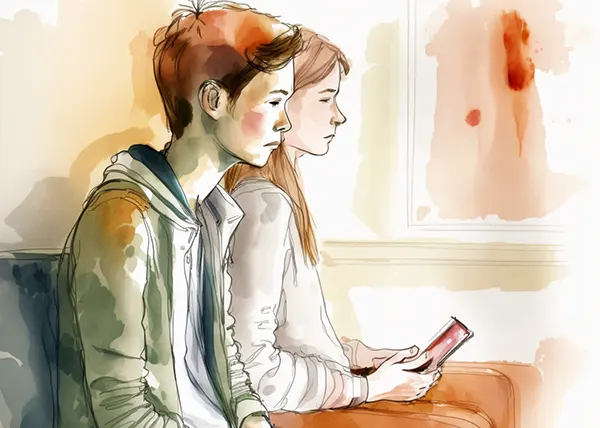Therapy for Grief and Loss

Do you have difficulty discussing your loved one who died with friends and family? Or feel like your grief burdens others, so you reach out to people less? Does it sometimes feel like a reminder of the person can derail your entire day? How do I know when to get grief therapy? These questions, along with countless others, are examples of the complexity of grief. My approach to grief therapy is grounded in a person-centered approach. No two people grieve the same, so no two therapy approaches should be the same. Below I have outlined some considerations about grief, what it can look like, and how you can take care of yourself. If you would like to speak more about how therapy might help your grief, please reach out by phone, email, or online.
What is Grief?
Grief is a natural experience that is unique to each individual. When you lose someone significant in your life, it’s normal to experience a range of emotions, thoughts, and physical reactions. Physical and mental health, support network, and the type of death the person experienced also influence how you will grieve. Some common experiences include physical reactions like exhaustion, headaches, and digestive problems. Mental and cognitive reactions like confusion and forgetfulness can also occur, as can emotional and behavioral reactions like sadness, guilt, and frustration. However, coping with grief is a personal journey, and there is no set timeline for how long it should take.
What is grief therapy?
Several strategies can help you cope with grief. One of the most important things to do is rely on your support network, including family, friends, and coworkers. Talking to a therapist or finding a support group can also help deal with grief reactions.
The complexity of your relationship with the person that died and how they died influences the approach to therapy. My approach is first to understand what has happened and your connection to the person. Whether you are a child or an adult, the process of grief therapy is the same. Grief therapy is a mix of understanding your relationship and your grief, exploring, and expressing the pain of the loss, learning how the loss changes your way of life and learning new ways to connect to the person that died.
When should someone go to therapy for grief?
The timing of grief therapy is specific to your support network and how the person died. At the beginning of your grief, there tends to be a lot of support, like family staying with you or people checking in on you. The first 10 to 60 days is the best time to rely on your friends and family. Many clients tell me they wanted to start therapy after a month or so because everyone around them seemed to move on or forget about the person who died. This is an ideal time to begin therapy. However, if the person died tragically from suicide, an accident, or medical-related death, seeing a therapist might be helpful sooner. This is because of the trauma and shock that can occur with an unexpected death. No matter the timing, it is recommended to at least reach out and discuss your situation. After a brief conversation, we can figure out if therapy now or in the future will be helpful.
How do I get started?
Reach out to me. I can discuss your circumstances and determine if therapy is right for you. Please feel free to ask questions about me and my practice. I have worked with grieving families for a long time and have been trained to work with children, teens, and adults after a tragic loss such as suicide or an accident. If you are supporting someone that is grieving, you can also reach out, and I am happy to provide resources that may be helpful.
If you are looking for a support group for a child or a family, please visit Bo’s Place for more information about their free support groups.
